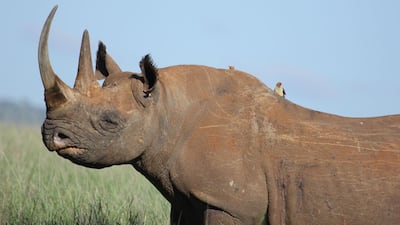Police investigations into the $72 billion-a-year trade in animal parts rarely snag the key players behind multinational operations, according to a new study based on interviews with dozens of convicted smugglers.
Researchers spoke to 73 people convicted of wildlife crimes in South Africa over a decade from 2009 and discovered that most were minor players within sophisticated organisations responsible for poaching, processing and moving animal parts.
Nearly three quarters of them were jailed for rhino-related crimes while the rest were in prison for trafficking abalone and cycads, one of the world’s oldest and most rare plant species, said wildlife trade monitoring group Traffic.
Some of those employed to dig up cycad plants – which are prized by collectors – were not told what they were doing and did not know it was illegal, the report found. Poachers were often from communities with few other employment options.
"The study found that most offenders either participated in the initial activity of the illicit wildlife chain – the poaching of the wildlife – or participated in supporting roles such as the transport or the storage," said the Insights from the Incarcerated report.
“These roles often carry the highest risk of detection by law enforcement, whereas their subsequent arrest and prosecution does little to disrupt the overall illicit trade in these commodities.
“Senior members... knowingly allow these people to take the most risk for the illicit enterprise, safe in the knowledge that if they are arrested, they are easy to replace.”
Researchers said the arrest of the “ground level” offenders could snare some of the masterminds through tracking phone data, pursuing money trails and anti-corruption tactics to target officials who are paid to ignore the trade.
South Africa is a key player in efforts to tackle rhino smuggling because it is home to more than two thirds of the world population.
The international trade in rhino horn has been banned since 1977, but poaching has surged over the past decade through demand for traditional cures in China and the Far East, despite the debunking of their supposed medicinal benefits.
The National reported in October how elephant poaching for valuable tusks was a source of income for ISIS in central Africa.


